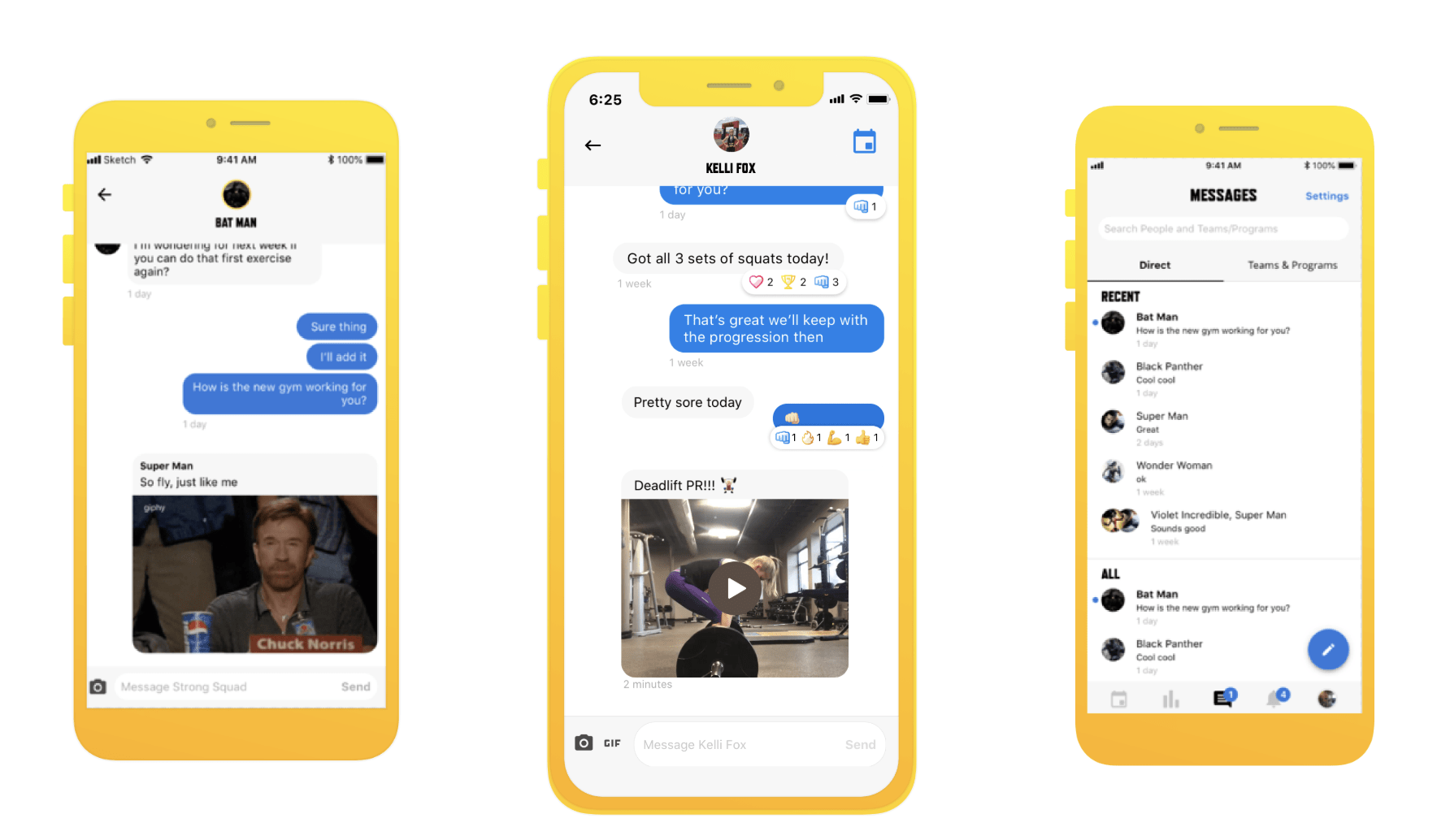5 Micronutrients You Need More Of
Sports PerformanceWhether you’re following a Paleo, keto, or vegan diet or just trying to eat clean, you’re probably paying plenty of attention to your macronutrient intake.
But while it’s important to find the right mix of protein, fat, and carbohydrates to fuel your performance and keep up with your busy lifestyle, these macros aren’t the only parts of the nutrition puzzle.
To keep your body functioning optimally, you also need to dial in your vitamins and minerals, which play a key role in recovery, immunity, and more. Here are some micronutrients you might do well to get more of.
// 5 Micronutrients You Might Not Be Getting Enough Of

1. Magnesium
Think of magnesium as the Swiss Army knife of minerals. It’s involved in regulating 300+ bodily processes, including muscle contraction, heart function, and blood sugar stabilization.
When you’re stressed out, are training hard, or are fighting off sickness, your body starts gobbling up magnesium like a 13-year-old on a midafternoon snack rampage (non-parents, trust me on this one).
A pair of scientists from the USDA also found that athletes need 10 to 20 percent more magnesium than sedentary people to replenish what’s lost through sweat during exercise.
The takeaway? If you’re training hard three times a week or more, you’ll need to get additional magnesium from foods like pumpkin seeds, chia, almonds, or spinach.
On the supplement side, you can take magnesium as a standalone or take two to three capsules of ZMA (zinc, magnesium, and vitamin B6) in the evening to not only help you get enough of this essential mineral, but also promote restful sleep.
2. Vitamin C
You might roll your eyes at this one, as it’s not exactly revelatory to name vitamin C as an essential micronutrient.
Yet as researchers like Rhonda Patrick started to look into ways to boost immunity during the COVID-19 pandemic, they found evidence that weighed heavily in favor of vitamin C intake. “Vitamin C also appears to boost the immune system by promoting the proliferation of T cells and preventing T cell death,” Patrick wrote. “T cells play a major role in driving an immune response against pathogens such as bacteria or viruses.”
Get your vitamin C fix by eating plenty of citrus fruits, drinking antioxidant-rich black currant juice, and adding tomatoes and bell peppers to salads. If you’re going to take a supplement, try liposomal vitamin C, which some studies suggest may be more readily absorbed than other forms.
3. Vitamin D
Vitamin D is another essential micronutrient.
It not only helps reduce the incidence of certain cancers and keeps your musculoskeletal system strong, but also enables you to fall and stay asleep.
Yes, if you’re reading this in North America, you’re likely getting all the vitamin D you need from sun exposure. But recurring outbreaks of COVID-19 in some areas and smoke from wildfires in California, Colorado, and Arizona have conspired to keep certain folks indoors.
If that’s you or there’s some other reason (remote schooling, crazy work schedule, etc.) that you can’t get out and about much, consider taking between 2,000 and 5,000 of vitamin D daily.
To further enhance your bone health, you could get a supplement that also contains vitamin K.
4. Zinc
Zinc is another mineral that came to the fore recently during discussions about non-pharmaceutical ways to ward off the coronavirus.
Writing in Frontiers in Immunology, a trio of German scientists noted that zinc is likely to reduce the chance of COVID-19 entering the body, inhibits viral replication, and increases anti-viral immunity.
Zinc also helps regulate testosterone levels, has an antioxidant effect, and keeps mood-regulating brain chemicals in balance, which shows promise for treating conditions like depression, according to one meta-analysis published in Biological Psychiatry.
You can get more zinc by eating seafood, nuts (pecans, almonds, and peanuts are particularly rich sources), and whole grains.
That being said, a meta-analysis published in Sports Medicine concluded that even though the athletes studied consumed more zinc from their diets than the general population, their blood serum levels of the mineral were generally lower.
As such, you might want to consider taking a daily zinc supplement that contains 20 to 40 mg.
5. B Vitamins
OK, this is technically cheating as there isn’t a single B vitamin but eight.
The full list is: thiamine (B1), riboflavin (B2), niacin (B3), pantothenic acid (B5), pyridoxine (B6), biotin (B7), folate (B9), and cobalamin (B12).
One of this group’s most important roles is supporting enzyme function throughout the body. For enzymes to break down food, release energy, and ferry oxygen through the bloodstream, they need the help of B vitamins.
These mighty micronutrients also support cellular health, nervous system function, and the release of neurotransmitters like dopamine.
As vitamins B1, B2, and B6 are integral to energy metabolism, make sure you’re getting enough of them. According to researchers at Oregon State University, “Active individuals lacking in B-vitamins – including college athletes and other elite competitors — may perform worse during high-intensity exercise and have a decreased ability to repair and build muscle than counterparts with nutrient-rich diets.” Your body cannot store B vitamins, so you’ll need to get them daily in food like eggs, beef, and dairy products.
Good plant sources include beans, seeds, and green leafy vegetables.
Need a top up?
Then a B vitamin complex containing each of the eight kinds listed above is a catch-all on the supplement front.
TAKE YOUR TRAINING
TO THE NEXT LEVEL
The TrainHeroic Marketplace
TrainHeroic brings online training and strength programs to life with an unmatched imersive training experience delivered directly to your phone. Browse our Marketplace for thousands of programs or take your training up a notch by joining an online community with fresh programming and coaching by some of the biggest names in the strength game starting at $15 / month.


READY TO TRY TRAINHEROIC?
Our powerful platform connects coaches and athletes from across the world. Whether you are a coach or trainer looking to provide a better experience for your clients, or you’re an athlete looking for expert programming, click below to get started.
Want more training content?
More coaches and athletes than ever are reading the TrainHeroic blog, and it’s our mission to support them with the best training & coaching content. If you found this article useful, please take a moment to share it on social media, engage with the author, and link to this article on your own blog or any forums you post on.
Be Your Best,
TrainHeroic Content Team
HEROIC SOCIAL
HEROIC SOCIAL
TRAINING LAB
Access the latest articles, reviews, and case studies from the top strength and conditioning minds in the TH Training Lab

